#disability and education
Explore tagged Tumblr posts
Text
you wanna know something? I was extremely ambitious as a child. I've wanted to be an engineer and an astrophysicist since before I learned long division. I wanted to be a writer by the time I was 9, and I wanted to be a singer by the time I was 11.
That ambition decreased in middle & high school, but it never fully went away; I decided I also wanted to be a visual artist and a programmer and a polyglot and an activist. On the more casual side I want to study genetics, pharmacology, voice acting, literature, linguistics, anthropology, the occult, & religious history.
I was a straight A student in elementary school. I wasn't just a straight A student, I was a dedicated nerd; I genuinely enjoyed school despite severe social ostracization and I thought most of my homework was interesting enough that I wasn't bored while doing it.
And somehow, despite that, despite that I've always been ambitious and always sought challenge and that I was competitive to a fault, I somehow managed to convince myself I was lazy in middle and high school when my grades dropped due to severe unaddressed childhood trauma causing mental health issues, my ADHD medication losing effectiveness from being on it for a decade, and multiple undiagnosed chronic illnesses. I never actually stopped trying. I'd just convinced myself that because I couldn't complete classwork with the same attention I used to, that because I was stressed and exhausted and had to rest more often, that it was somehow my fault that my grades got worse. No, I'm fucking disabled. No one ever bothered to tell me that ADHD was a disability until I was in high school, no one but me realized I was depressed or autistic until I asked for diagnoses, no one ever took the severity of my chronic fatigue or post-exertional malaise or orthostatic intolerance seriously enough. fuck the way estrogen interacts with dysautonomia y'all it's so bad, testosterone HRT was more effective treatment for it than anything else. i still need salt tablets but my POTS is stable now entirely because of T.
I think the real kicker is that all it took was a bus to my house for me to attend school again. The barriers to success for disabled students often have such simple solutions and yet no one's willing to implement them until forced to. I was convinced for years that it was my own failures & incompetence that were the issue, and all it took was not being forced to walk.
I'm going to start college in the fall and I know it's possible for me to achieve some of the things I've had my sights set on since I was a kid. I still have chronic fatigue and chronic pain and non-24 complicates scheduling, but calculus is a hell of a lot easier when you aren't suffering 3+ types of cognitive impairment simultaneously. side note why is calculus Like That I can do physics related calculus because i learned integrals and derivatives before literally anything else because i was taking AP Physics: Mechanics concurrently with Calc AB during my first attempt at 12th grade, but i struggle to comprehend the rest of it.
A few years ago, I'd resigned myself to not being able to pursue my interests. I figured I wouldn't be able to succeed in anything I tried due to how ill I was. And while I still may not be able to study all of the things I'm interested in at a college, I sure as hell can pursue the most important ones — the original four things I wanted to do with my life. Writing and music can easily remain hobbies; I don't need those to be part of my career to feel fulfilled in them. I'm planning to study cosmology in the distant future (from what I understand, you need a Ph.D to even get started) and I'll be basing my class choices around that; underclassmen all have undeclared majors at my college, but as of now I'm planning to frame my schedule around pursuit of a physics degree (which is also easily transferrable to engineering!). Crushing college debt, here I come — but it's worth it to study astronomy, physics, & cosmology.
All it took was a bus. All it took for me to graduate high school was a bus.
#disability and education#i am way too ambitious#notebeans' random personal essays#ableism#ableism in schools#disabled#disability#internalized ableism#laziness is a myth#actually disabled#autistic#autism#actually autistic#POTS#adhd#actually adhd#post exertional malaise#trauma#mental illness#depression
38 notes
·
View notes
Text
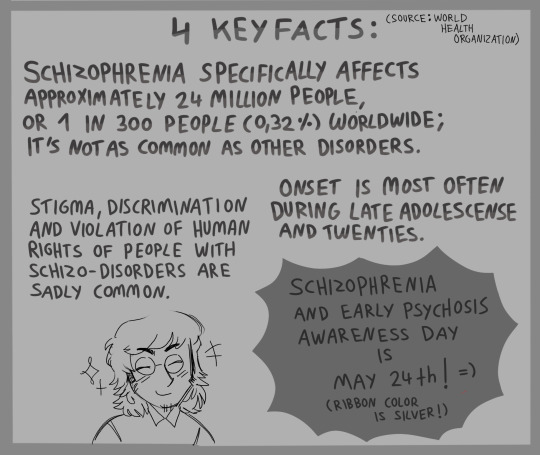
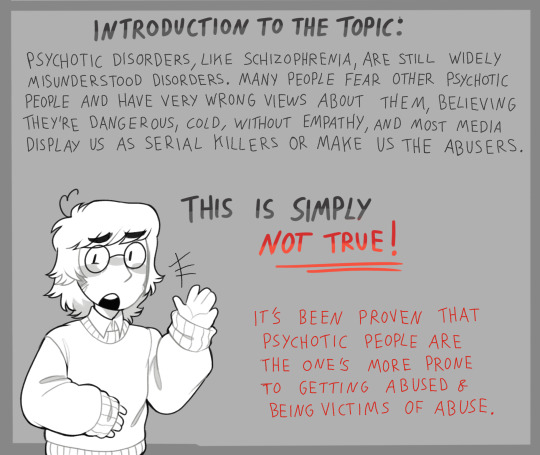
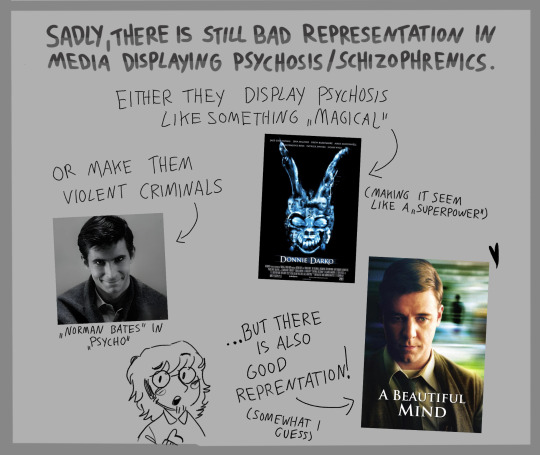

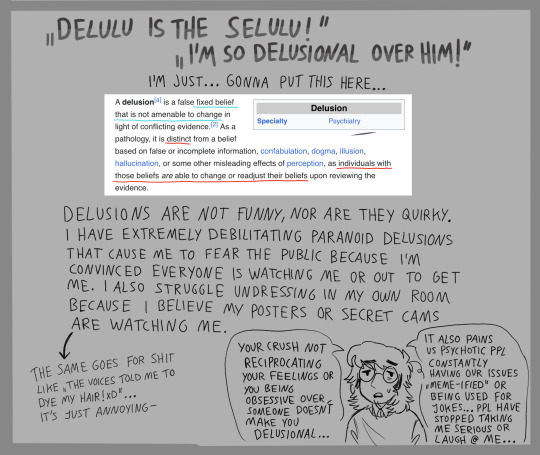

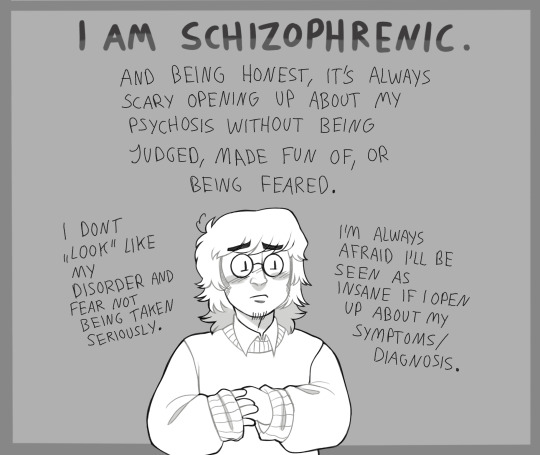
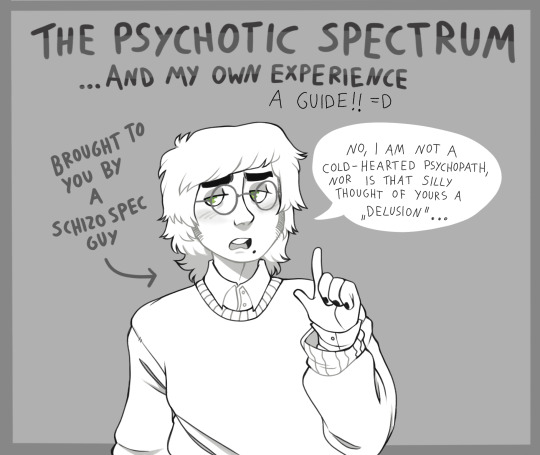

Here I am, posting something similar like the fibro post... this one goes out to my psychotic folks🫶
#mental illness#mental health#actually mentally ill#actuallt schizophrenic#schizoaffective#schizophrenia#schizospec#psychosis#actually psychotic#psychotic#schizophrenic#schizoaffective disorder#schizophreniform#schizotypal personality disorder#schizoid personality disorder#schizoid#hidden disability#invisible disability#invisible illness#delusion#hallucinations#information#infographic#info post#education#disorder#personality disorder#bpd#borderline personality disorder#bipolar
8K notes
·
View notes
Text
No but seriously the United States desperately needs to have a discussion about segregation against the disabled in our school systems and we can start with how anti-masking and perfect attendance policies have forced medically vulnerable kids to either put themselves at grievous risk or pull out of school all together
8K notes
·
View notes
Text
Btw shout-out to disabled people who feel sexual attraction but can't have sex or masturbate. Shout-out to disabled people who can't have sex or masturbate because it hurts. Shout-out to disabled people who can't have sex or masturbate because they're dependant on a caregiver. Shout-out to disabled people who can't have sex or masturbate because they're deemed "too mentally immature". Shout-out to disabled people who can't have sex or masturbate because they would be bedridden for days if not weeks on end. Shout-out to disabled people who can't have sex because they can't get into the right positions. Shout-out to disabled people who can't have sex because once their partner finds out they're disabled they refuse. Shout-out to disabled people who can't have sex because they can't go out to meet people.
Disabled people are not your uwu sexless perfect babies or broken people incapable of sexual pleasure. We deserve to be talked about in all aspects of life and the fact we aren't taught sex ed besides from an able bodied and able mental standpoint is genuinely god awful. No one talks Abt this and we deserve to be seen
4K notes
·
View notes
Text
once again thinking about how fucked up it is that special ed used me and other disabled children as unpaid, coerced labor. i worked enough to be making $100 a week. i was "paid" in fake money redeemable only at the school cafeteria, which i worked at, and was forced to do things that distressed me. they gave us $1 a week, if they remembered to give it to us at all.
this was while i would sometimes go the entire day without eating because i didn't have the money to buy food and the free food was not sensory safe. we also worked outside the community - grocery stores, warehouses, shoe stores security tagging items. all under the guise of job skill development, we did $100 of labor a week without ever getting paid. and we were demeaned while we did it. and we were just teens.
so no, i don't want to hear about how special education is good. not with the way me and my peers were treated and taken advantage of. death to institutionalization, in all forms.
#softspoonie#disabled#special education#special ed#disability#disability rights#disabled community#neurodivergent#special needs#autistic#autistic spectrum#autism spectrum disorder#autism spectrum#autism#neurodivergency#ableism#sanism#systemic ableism#unpaid labor#labor rights#workers rights#anticapitalism#anticapitalist#working class#leftist#leftism
5K notes
·
View notes
Text
I think the topic of consent is very important, and I think as an intellectually disabled person, it’s even more important to talk about what I was taught, and what my mom did.
My mom, who was a single woman at the time, explicitly taught me about consent. Why? Because she knew that I, as an intellectually disabled person and autistic person, needed to know it. And it needed to be drilled into my head the importance of consent. Not only did she teach me this, but she taught me how to communicate to trusted people if something happened. She knew that if she didn’t, the chances of me not knowing, or not understanding certain aspects of consent and sex in general, would be profoundly higher than my peers.
She noticed, she did the research, she taught and did what she could. And I am forever grateful for that. Intellectually disabled people, who have a higher rate of things happening to them and being abused, NEED to be taught about sex education, consent, and how to communicate if something were to happen. We are at a much higher rate of being sexually abused than our peers. And it is so so important that these things are taught to us so we are aware and able to protect ourselves and know when it’s time to contact a trusted adult.
4K notes
·
View notes
Text
most of the time. accessibility is about a) diversity of options, and b) autonomy to choose between those options. disabled people should be trusted to know what will work for us. not all disabled people have the same needs. not all disabled people will have the paperwork so many institutions require before you’re allowed to have your needs met. all of these problems could be solved if everything wasn’t so arbitrarily inflexible
#thinking about my experience with education access#but this is true in a lot of areas I think#disability
642 notes
·
View notes
Text
You know those teachers who would have posters in their classrooms like “weird is a superpower” and “in a world where you can be anything, be kind” then would proceed to scream at a neurodivergent child until they cried.
#neurodivergent#neurodiverse#autism#the education system#neurodivergence in schools#adhd#autistic#ocd#dyslexia#learning disability#learning disorder#ableism#cw ableism#school
907 notes
·
View notes
Text
Actually while I'm remembering to say this, happy disability pride month to all special ed kids and former special ed kids! It can be such an alienating experience, and involve a lot of infantilisation and denial of freedom, and society stereotypes special ed to hell and back. We deserve to be taken seriously and not stigmatised for needing different things from most people within the education system.
3K notes
·
View notes
Text
As an intellectually disabled person and an aac user, Ive been told many times about what peoples ideas of consent and sex is towards intellectually disabled people. I’ve been told that intellectually disabled people cannot consent, I’ve been told that we can’t have sex, that it’s not something we can do, or even comprehend. This is a very broad statement. No intellectually disabled person is going to be the same. Process the same, know the same, comprehend the same.
I as an intellectually disabled person, can have sex. I can consent to it. I can use my aac to consent. I can use my mouth words to consent. I can use the sign language I know to consent. Multi use of communication is important for me. And I can consent using any method.
Saying that intellectually disabled people cannot consent is not only wrong, but leaves a vast population of intellectually disabled people out of the conversation. Instead, rethink your language. Maybe instead say “some people cannot consent due to this or this” however, you never know. The most disabled person you know could be possible to consent maybe. You never know someone’s comprehension skills. Stop assuming. Unless you know the person really really well, you never know.
Not to mention you never know what that person could be capable of in the future. Have they been taught about sex? Have they been sheltered from it and not told about it? People with ID are notorious for not having been taught about Sex. It’s an important subject that everyone has the right to learn. 
That’s all. Just some late night thoughts.
1K notes
·
View notes
Text
Something I miss from earlier eras of the creative side of the internet was things just being unabashedly low-budget. Just all unashamedly amateur, unprofessional, ‘I don’t own a good camera but I have a story to tell you’, ‘I can’t afford a good mic but I have a song to sing for you,’ ‘I don’t have any kind of background in editing or lighting and I only just picked up this guitar last Tuesday but here’s an entire musical me and my friends wrote about our favourite book, we filmed it on a potato and put it up on YouTube in ten minute segments because we thought it was pretty funny.’
#everything felt so much less like Content then#and as someone who wants to share creative stuff online#it’s now incredibly daunting thinking about doing that bc#especially as a disabled person who can’t work full time#it feels almost impossible to extricate art from being Content#like there’s this immense pressure to produce things that could pass as professionally produced by a team of educated people#and to make smart decisions so that somehow eventually you can profit off your art#and instead of it being a ‘hey look at my silly little song’ it becomes#competing in an over saturated market already dominated by the nepotism afforded by wealth and connections#and it feels like it would very difficult not to measure my personal satisfaction with how a certain piece of art turned out#by how much attention it got online#even though I genuinely have zero desire to be famous and it sounds like a complete nightmare#anyway I’m gonna have ice cream for dinner how about you guys#hmp42
5K notes
·
View notes
Text
Back to post again. Please reblog this if you’re like. Disabled and do, might, are planning to ever have sex. Or just for educational reasons reblog it.
It’s time for:
DISABLED SEX EDUCATION.
So! Let’s get right into it.
We all know that we have a right to know and understand our bodies and how we can have safe, consenting, and pleasant sex. Most schools don’t teach disabled inclusive sex education!
Part One: Sex Toys
By and large, a bafflingly inaccessible market. But still, here’s what you can do.
For limited mobility and dexterity with hands and the like, larger controllers and wireless controllers for toys are good to look into.
If you have movement disorders, a toy that doesn’t need to be moved to stimulate can be helpful.
Also, a pretty universal one is a nice sexy vibrating pillow that you hump. It’s not talked about often because most abled people don’t want that toy when there are more penetrative or intense toys out there, but for cripples like us, it can be very helpful to know it exists, and it’s a good toy.
Part Two: Partner Communication
Whether this partner is your lifetime lover or just a one-night-stand, you need to be communicating properly about your needs and limits, just like abled people, but MORE. Communicate a safe word for if you feel in too much pain, communicate how your disabilities may affect sex with this partner if they aren’t aware, and communicate on the type and level of aftercare you may need. I know for a fact that I would need my partner to take me into the bathroom to pee after sex because I can’t do it of my own accord after that (also, speaking of, PEE AFTER SEX.)
No matter how small it is, communicate. “I’d be more comfortable if I had some pillows under my stomach/back/hips in this position.” “Can we switch positions, this is slightly painful on my hips/back/shoulders.” “I don’t like being pinned like this, because it’s a position I can’t escape from when I want to/it’s causing pressure on my joints/whatever else.”
Partner communication is a big deal with disabled sex and requires a decent level of trust. I also highly recommend that if you have access, being frank with your carers and occupational therapists for instance, will help you a lot with asking for advice in a safe way.
Part Three: Positioning
Ooh, sexy pose time!
From what I can find, these seem to be the most widely accessible poses for sex.
Modified Missionary.
The limited mobility partner sits on the edge of the bed, the other partner stands facing them, and then can lift their partners legs up so their ankles are on their shoulders. If the standing partner is too tall for this to be comfortable, you can place a chair behind them and have the sitting partner put their ankles there (add a blanket over the back of the chair for comfort on their ankles!)
This position is best used when only one person has a mobility issue. It’s also good for if one or both partners are obese, or if a partner is pregnant.
Facing position.
Aka: face to face. Person one sits in a chair, on the edge of the bed, or even in their wheelchair with arm rests removed if your chair can do that and you want to bang in your chair. Their partner sits on their lap and straddles them. Partner on top braces their feet on a solid surface to be able to move their hips and thrust, and the bottom partner can help by grabbing their partner by the backside and lifting/bouncing.
This position is good for two partners with limited mobility, and people who suffer with fatigue.
Intimate Sitting.
Basically the same as above but both partners are fully on the bed. The partner near the headboard can benefit from being held up with pillows, and then they stretch out their legs. The other partner straddles them, feet on the bed, and bends their knees to lower them down.
This is another position for a limited mobility and unlimited mobility couple, especially those looking for face to face intimacy.
Sexy Spooning.
Get into a spooning cuddle position and get freaky.
This is great for people with lower back pain, chronic pain, and arthritis.
Modified Doggystyle Chair.
Limited mobility person sits in a chair or wheelchair near the edge of the bed, their partner sits in their lap and leans forward to brace themselves on the edge of the bed with their upper body and arms.
Great for hip pain sufferers and of course those with mobility issues, though be aware that the person on the edge of the bed is taking more physical exertion.
Modified Doggystyle Bed.
Or the floor, if that’s more comfortable. Put some pillows on the bed/floor to support the bottom partner, and then the top partner drapes over them chest to back.
If you require more stability as the bottom partner this is for you.
69 Flipped.
One person laid on their side in the spooning position, and the other lays facing them in the same way, but with their head at the opposite end.
This is good for arthritis, or people who have weak hips or hips prone to muscle spasms. Also, unlike media might have you believe, 69 doesn’t have to be oral-oral. You can use toys, your hands, whatever, as long as you and your partner are having fun.
Final notes.
Don’t be afraid to explore each others bodies. Touch, massage, stroke each other and see how you feel. Places like necks, inner thighs, ears and sides can all be turn-on zones due to their extra sensitivity. Just… explore. Don’t try to take it too seriously either, sex is sexy, sure, but it’s also funny and sometimes you make a weird noise (verbally or otherwise!) and you can’t keep fucking for all the giggles you’re having.
Have fun, do it safely, remember that sex is cleaner with a packaged wiener, and PEE AFTER SEX FOR GODS SAKE.
#cripplepunk#cripple#cripple punk#physically disabled#disabled#actually disabled#disabled sex#disabled sex Ed#sex ed#sex education#disabled sex education
3K notes
·
View notes
Text

Source

#education#acab#criminal justice#news#current events#government#the left#progressive#disabilities#disability
393 notes
·
View notes
Text
If you're wondering how disability staff in schools get trained about physical disability, they don't.
I'm the first wheelchair user ever in my school. The school is pulling rules out of their ass and consistently have no clue on what the guidelines are from the department. One of the disability coordinators at my school could not fathom why a red emergency cord should touch the ground (also didn't know what it was), the two of them keep acting like they're allowed to give me medical 'advice' encouraging me not to use my wheelchair (even after I've clearly shut them down and stated I'm more than aware about the effects of deconditioning) and the current SNA in my school seemingly thinks and acts like I cannot simply be anything else then a lovely little cripple with the autonomy of a five year old and the personality of a puppy in unfortunate circumstances.
All these people are specifically there to help disabled students. But seemingly their training and knowledge stops once a wheelchair user comes into the picture.
#god i hate education#cripplepunk#cripple punk#wheelchair user#disabled student#physically disabled#angry cripple
2K notes
·
View notes
Text
By the way, if you want to hold the door for a mobility aid user don't do this, see how this dude is like... in the doorway? Wheelchairs and walkers can't fit through when you do this.

If you've been asked or if you asked the person using the aid if they need it, do this. Get BEHIND the door and open it all the way. That way everyone fits and you're not going to get squashed toes.

2K notes
·
View notes
Text
"Some seem to think asking for intimate details about your sex life is totally okay. They want to know mechanics and details like: "How do you have sex in a wheelchair?" "Can you...?" If you're LGBQ, they ramp it up even more. The good old "but how do lesbians have sex?" question goes on steroids when one or both partners is disabled. It doesn't seem to occur to them that they're being pretty rude — how would they like it if we went around asking them intimate personal questions?
You have the right to privacy, and to be treated with respect and dignity. That includes the right to decline to discuss private medical information with people, and to pass on an opportunity to talk about whether and how you have sex. The only people who truly need information about your sex life are your sexual partners — in intimate personal communication with each other about how to have joyful, delightful sex — and your doctor, when it's medically relevant. ("I'm thinking about getting pregnant," "I'm having vaginal pain," or "I'm worried I might have an STI.")"
s.e. smith, I Beg Your Pardon? Dealing with Rude Nondisableds
295 notes
·
View notes